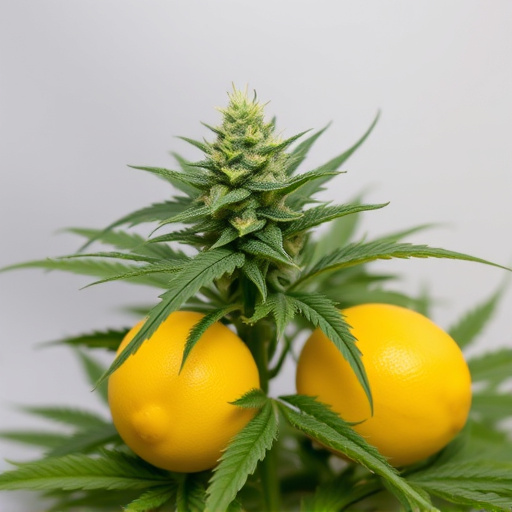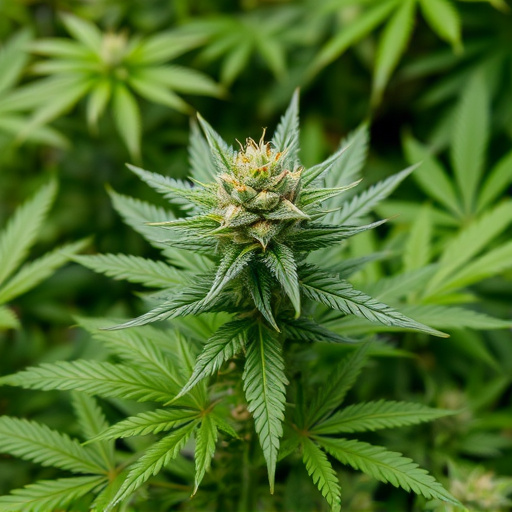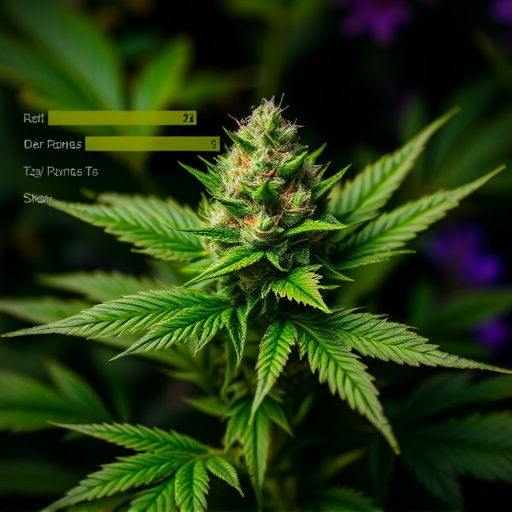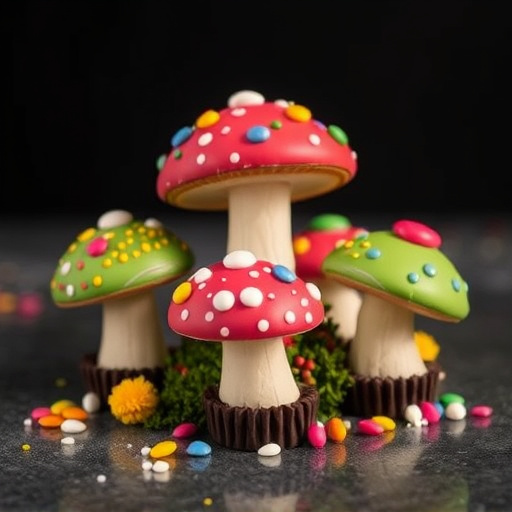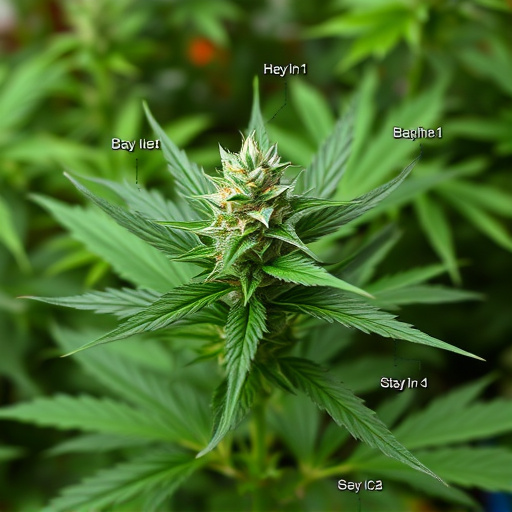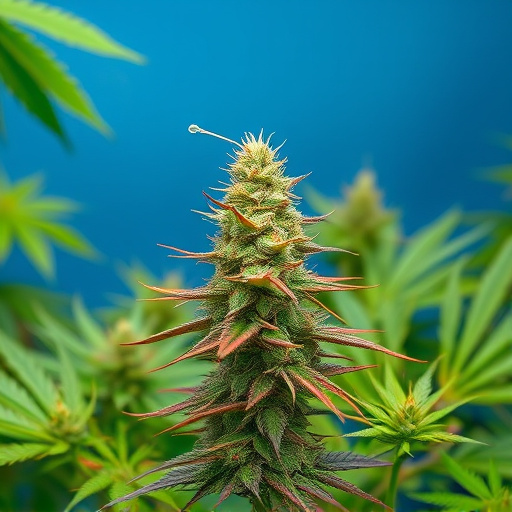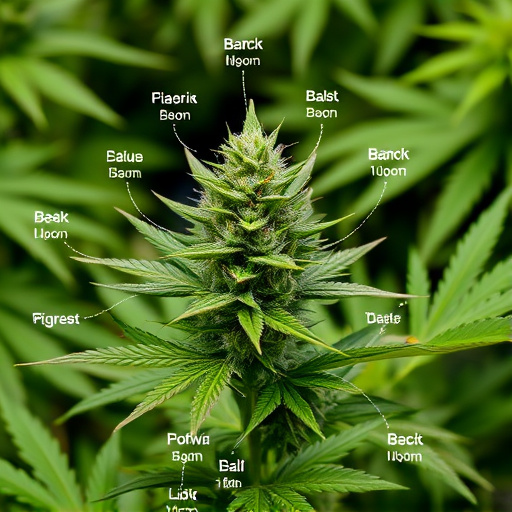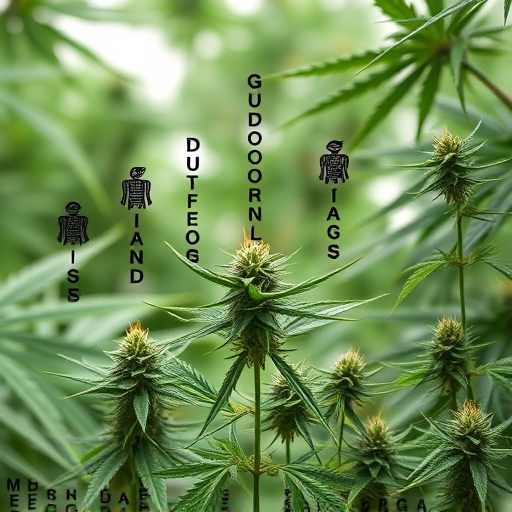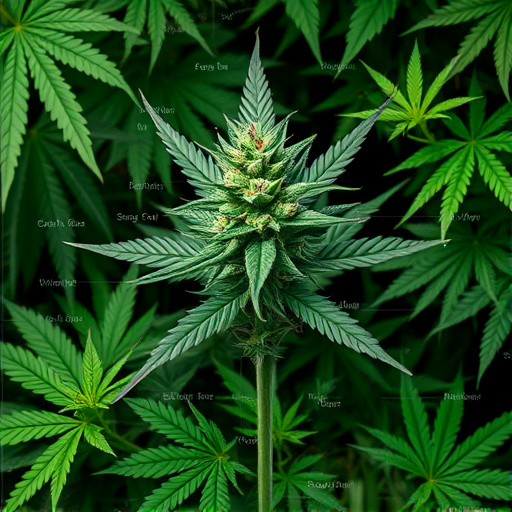Medical cannabis interacts with brain's dopamine and serotonin neurotransmitters, offering potential therapeutic benefits. Cannabinoids like THC and CBD affect these systems differently, impacting pleasure, mood, and stress responses. Understanding specific strain profiles helps patients manage conditions linked to neurotransmitter imbalances, balancing desired effects against risks of excessive use.
Cannabis has long been known for its psychoactive effects, but its impact on neurotransmitters like dopamine and serotonin is a growing area of interest. Understanding these chemical messengers—dopamine, linked to reward and motivation, and serotonin, tied to mood and well-being—is crucial to comprehending how cannabis interacts with our brain. This article explores the intricate relationship between cannabis consumption and these neurotransmitters, delving into specific strains of medical cannabis and their unique effects on dopamine and serotonin systems.
- Understanding Dopamine and Serotonin: The Neurotransmitters of Reward and Mood
- The Effect of Cannabis on Dopamine and Serotonin Systems
- Strains of Medical Cannabis and Their Impact on Neurotransmitters
Understanding Dopamine and Serotonin: The Neurotransmitters of Reward and Mood
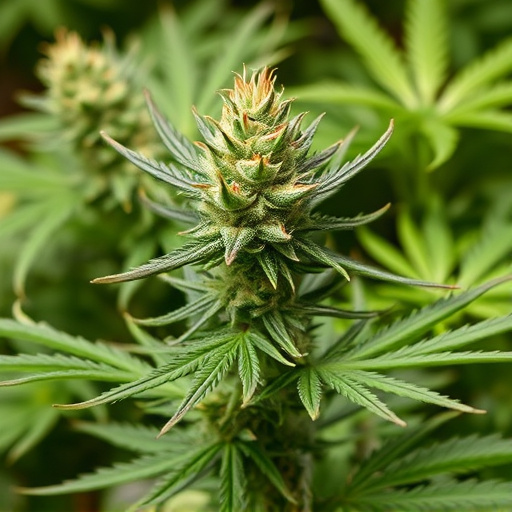
Dopamine and serotonin are two essential neurotransmitters that play a crucial role in regulating mood, motivation, pleasure, and reward. Often referred to as the “feel-good” chemicals, they are integral to our emotional well-being and overall mental health. Dopamine is associated with pleasure, reward, and motivation, while serotonin influences mood, appetite, sleep, and cognitive functions.
When we engage with rewarding experiences, such as enjoying a favorite strain of medical cannabis, dopamine is released in the brain’s pleasure centers. This release reinforces positive behaviors and contributes to the sensation of euphoria often associated with certain strains. Serotonin, on the other hand, helps regulate mood stability and emotional responses. The interaction between these neurotransmitters influences how we perceive pleasure, cope with stress, and maintain a balanced mental state. Understanding this intricate relationship provides valuable insights into the effects of medical cannabis on the brain and its potential therapeutic applications.
The Effect of Cannabis on Dopamine and Serotonin Systems
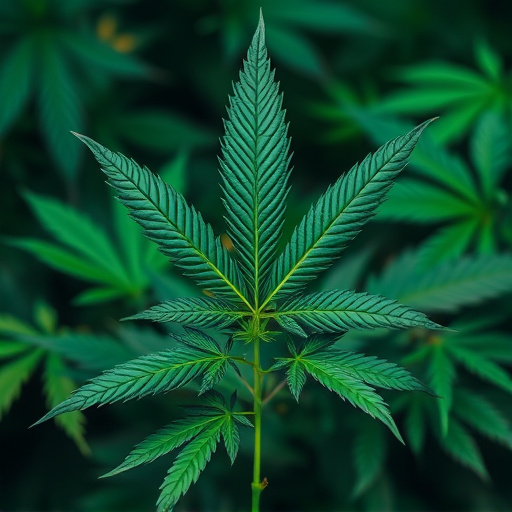
Cannabis has a complex interplay with the brain’s dopamine and serotonin systems, which play pivotal roles in reward, mood, and cognition. When an individual consumes cannabis, particularly through smoking or vaping, it activates specific receptors in these neurotransmitter systems. This activation can lead to the release of dopamine, often associated with pleasure and motivation, resulting in the euphoric effects many users experience.
Different strains of medical cannabis have varying compositions of cannabinoids, such as THC (tetrahydrocannabinol) and CBD (cannabidiol), that target different receptors in the brain. For instance, THC primarily binds to CB1 receptors, abundant in areas controlling memory, coordination, and pleasure, while CBD interacts with a range of receptors, including those involved in serotonin regulation. This interaction can modulate serotonin levels, potentially offering therapeutic benefits for conditions like anxiety and depression. Understanding these effects is crucial for navigating the complex relationship between cannabis consumption and overall brain function.
Strains of Medical Cannabis and Their Impact on Neurotransmitters
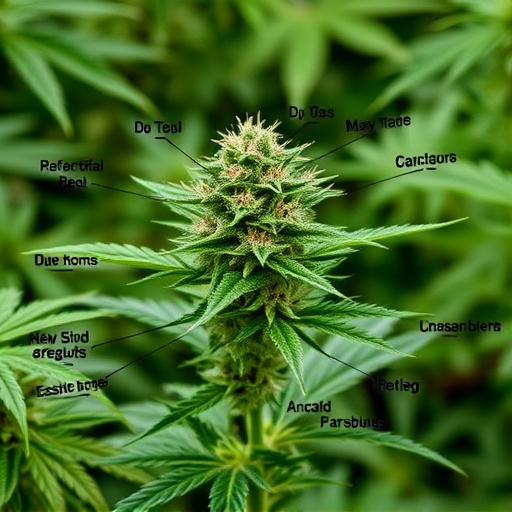
Different strains of medical cannabis have unique chemical compositions, which can significantly influence neurotransmitters like dopamine and serotonin. Research suggests that specific cannabinoids present in these strains interact with our endocannabinoid system (ECS), playing a role in mood regulation, pleasure, and reward. For instance, Cannabidiol (CBD) is known for its potential to enhance serotonin levels, thereby improving mood and reducing anxiety. On the other hand, Tetrahydrocannabinol (THC), the primary psychoactive compound, can stimulate dopamine release, leading to feelings of euphoria and pleasure.
The impact of various strains varies depending on their THC and CBD content. High-THC strains may induce a stronger dopamine response, but excessive THC use has been linked to potential negative effects on mental health due to its influence on dopamine systems. In contrast, strains with higher CBD concentrations tend to have a more balanced effect, offering potential therapeutic benefits without the same degree of psychoactive intensity. Understanding these differences is crucial for patients seeking specific strain profiles to manage conditions related to neurotransmitter imbalances.
Cannabis’s impact on dopamine and serotonin systems, as discussed in this article, highlights the complex relationship between the plant and our brain chemistry. Understanding these effects is crucial when considering the various strains of medical cannabis available. Different strains can differentially affect neurotransmitters responsible for reward, mood, and well-being. By exploring specific strains’ impacts, individuals can make informed decisions regarding their mental health and overall well-being, navigating the potential benefits and considerations of incorporating medical cannabis into their routines.

